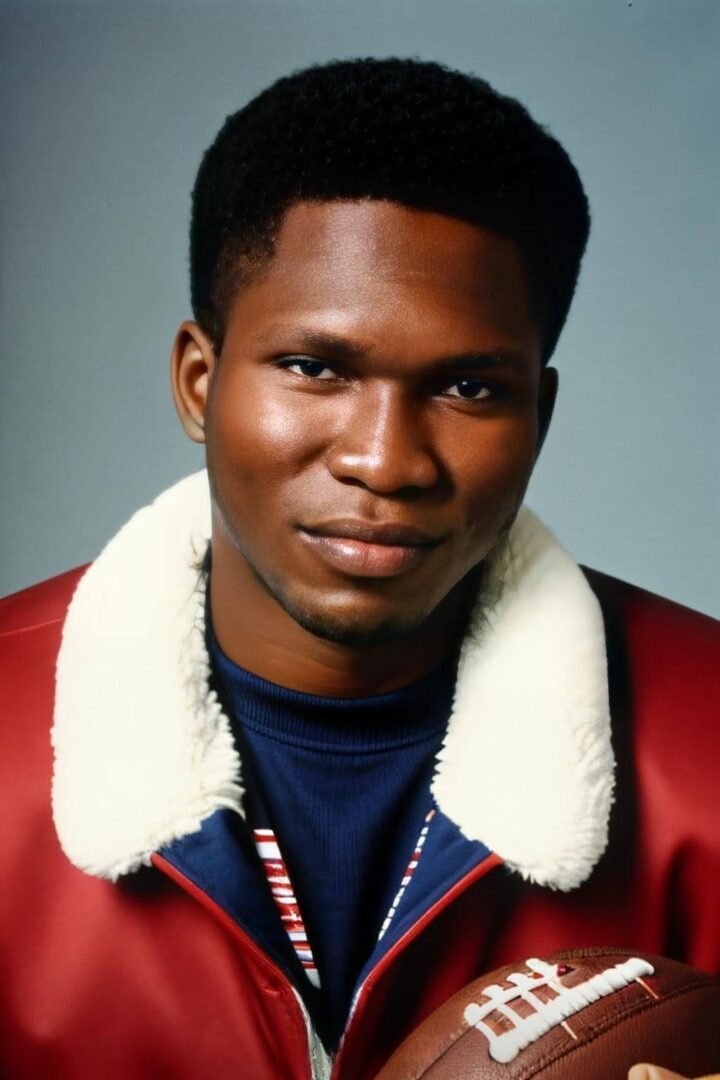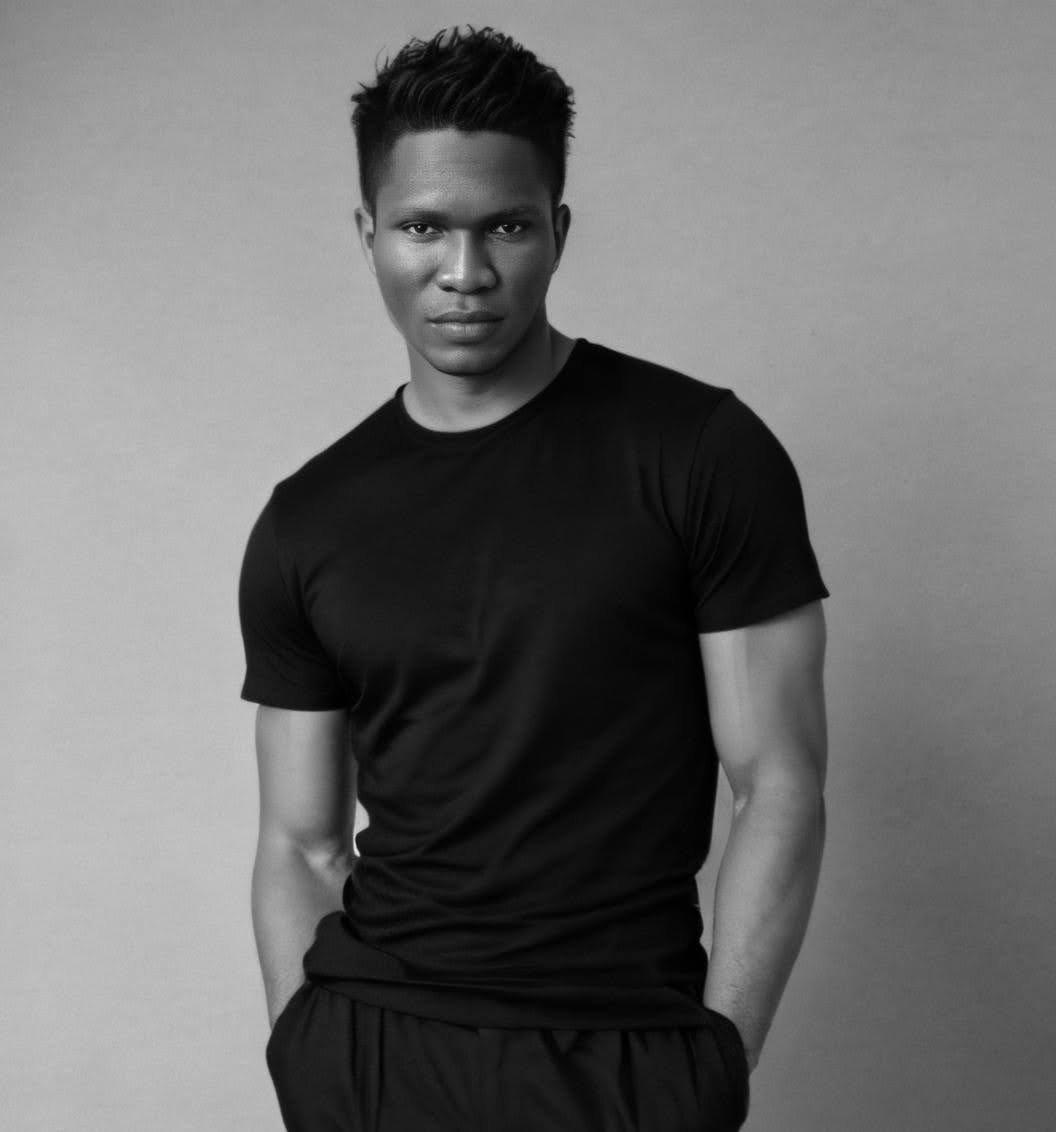Alright – so today we’ve got the honor of introducing you to Kngsley Lord. We think you’ll enjoy our conversation, we’ve shared it below.
Kngsley, thanks so much for taking the time to share your insights and lessons with us today. We’re particularly interested in hearing about how you became such a resilient person. Where do you get your resilience from?
Personal Growth & Experience-Based Responses:
– I get my resilience from my life experiences. Facing challenges and overcoming obstacles has taught me to adapt and keep pushing forward.”
– My resilience comes from my upbringing. I was taught to never give up, no matter how tough things get.”
– I’ve learned resilience through failures and setbacks. Each one has made me stronger and more determined.”

Thanks, so before we move on maybe you can share a bit more about yourself?
I’m Kingsley Lord, an innovative UI/UX Product Designer passionate about crafting intuitive, user-centered designs for web and mobile platforms. My work is driven by a deep understanding of user behavior, research, and the power of design to solve complex problems. Whether it’s wireframing, prototyping, or refining interactive experiences, I strive to create digital products that are not only visually engaging but also functionally seamless.
What excites me the most about UI/UX design is its ability to bridge the gap between technology and human interaction. Every project is an opportunity to enhance user experiences, making digital spaces more accessible, efficient, and enjoyable. I specialize in tools like Figma, Adobe XD, and Framer, ensuring that every design decision aligns with business goals while prioritizing user needs.
Currently, I’m focused on expanding my impact by working on projects that push the boundaries of design innovation. Whether it’s collaborating with startups to build intuitive MVPs, refining the user journey for established brands, or experimenting with AI-driven UX solutions, I’m always eager to explore new ways to improve digital interactions.
For those looking to elevate their digital presence, I’d love to connect and collaborate. Let’s create experiences that leave a lasting impression!

If you had to pick three qualities that are most important to develop, which three would you say matter most?
Three Key Qualities That Shaped My Journey & Advice for Beginners
Looking back on my journey as a UI/UX Product Designer, three key qualities have been instrumental in my growth and success:
1. User-Centered Thinking
One of the most impactful skills I developed early on was understanding user behavior and designing with empathy. Great design isn’t just about aesthetics—it’s about solving real problems for real people. Conducting user research, usability testing, and continuously refining designs based on feedback has helped me create experiences that truly connect with users.
Advice:
For those starting out, focus on understanding user psychology and usability principles. Read books like The Design of Everyday Things by Don Norman, practice analyzing real-world designs, and always ask, “How does this benefit the user?”
2. Adaptability & Continuous Learning
The UI/UX field is constantly evolving, with new tools, trends, and technologies emerging all the time. Staying adaptable and open to learning has been crucial in keeping my skills sharp and relevant. Whether it’s exploring AI-driven design tools, learning new prototyping methods, or understanding accessibility standards, embracing change has kept me ahead in the industry.
Advice:
Never stop learning. Follow design blogs, take online courses, and stay engaged with the design community on platforms like Dribbble, Behance, and LinkedIn. Experiment with new tools like Figma, Framer, and Maze, and don’t be afraid to step outside your comfort zone.
3. Communication & Collaboration
Great design is rarely created in isolation. Working with developers, product managers, and stakeholders requires strong communication skills. Being able to present ideas clearly, give and receive constructive feedback, and advocate for the user has been essential in bringing projects to life.
Advice:
Work on articulating your design decisions. Practice explaining why you made certain choices, not just what you designed. Participate in design critiques, collaborate on open-source projects, and develop soft skills like active listening and negotiation.
Final Thoughts
Success in UI/UX isn’t just about technical skills—it’s about thinking critically, staying curious, and continuously refining your craft. Keep experimenting, stay user-focused, and never stop pushing the boundaries of what’s possible in design.
😊

Who has been most helpful in helping you overcome challenges or build and develop the essential skills, qualities or knowledge you needed to be successful?
The People & Resources That Helped Shape My Success
Success is never a solo journey, and I’ve been fortunate to have mentors, communities, and real-world experiences that have helped me overcome challenges and build essential skills.
1. Mentors & Industry Leaders
Early in my journey, I looked up to experienced designers, product managers, the money and entrepreneurs who shared valuable insights about UI/UX and the business side of design. Their guidance helped me avoid common mistakes, All thou I make some but I improve my design thinking, and navigate the challenges of working with clients and stakeholders. Some of the best lessons I learned were about balancing creativity with School & business needs—understanding that great design isn’t just about visuals but also about driving revenue and user engagement.
2. Online Learning & Community Support
Access to online courses, design communities, and free resources played a major role in my growth. Platforms like , MindLust, Pay Couse and YouTube provided knowledge that might have otherwise cost thousands in formal education. Engaging with communities on LinkedIn, Twitter also opened doors to opportunities, collaborations, and even paid gigs that helped me sustain myself financially while building my expertise.
3. Real-World Experience & Financial Lessons
Freelancing and working on real projects taught me some of the most valuable lessons—especially about money. Early on, I underestimated the importance of pricing my work properly. I took on low-paying projects just to build experience, but over time, I learned the importance of valuing my skills and setting fair rates. Understanding the business side of design—contracts, negotiations, and client expectations—became just as crucial as the creative aspect.
Advice for Others
If you’re starting out, seek mentors, invest in learning, and don’t be afraid to charge what you’re worth. Free work can help build your portfolio, but knowing when to transition to paid projects is key. Learn financial literacy, track your income and expenses, (NO GO MAKE THE MISTAKE I DID ) and think long-term—because financial stability allows you to focus on what you love without stress.
Contact Info:
- Website: http://kingsleylord.infy.uk/
- Facebook: https://web.facebook.com/people/Kingsley-Israel/61568973713796/
- Linkedin: https://www.linkedin.com/in/kingsley-lord-b81194278/
- Twitter: https://x.com/kingsley_new
- Youtube: https://www.youtube.com/@KingsleyLord1
- Other: Link-Tree
https://linktr.ee/kingsleylord

Image Credits
Kingsley Israel Lord
so if you or someone you know deserves recognition please let us know here.




